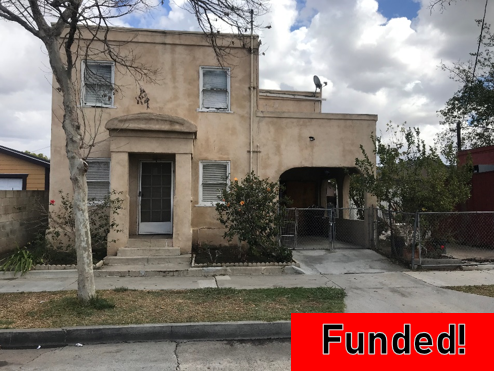What are the risks to lending on After Repair Value (ARV)?
The After-Repair Value (ARV) estimates the future value of a distressed property after it’s been repaired. ARV is not a property’s current value when purchased but rather the estimated value of the property once improvements are made. ARV is commonly used by fix and flip investors who purchase, renovate, and sell properties within 1 – 2 years. It’s important for fix and flip investors to know the ARV of a property because it helps measure whether there is enough margin for the flip to become profitable.
While the ARV is a useful tool for Fix and Flip investors, ARV can be a very risky metric for hard money lenders to lend against. Typically, Fix and Flip loans come in 2 parts. The first part is a loan to help purchase the property. The second part is additional funds that are held in a Funds Control Companies Escrow Account that disburses funds for the rehab in proportion to the percent complete of the project.
While many “ARV” loans work out seamlessly and are paid back full in a timely manner, this Blog describes scenarios where a loan on the “ARV” can result in a payment or a borrower default and subsequent yield reduction or principal loss for a lender/investor:
- After Repair Value (ARV) Estimate is Wrong: An ARV is an Estimate of Value. Changing market conditions, buyer preferences, interest rates and the quality and appropriateness of the improvements can all impact a future ARV. If the ARV is in fact lower than anticipated and the Contractor/Flipper can’t make a profit on the job, they are likely to walk away without their own skin in the game.
- Rehab Budget and Estimate Is Wrong: When a rehab job demo starts, many more problems or rehab work may be required than originally anticipated. For example: When walls are opened, bad pipes may need replacing; When new floors are needed, the sub-flooring may need replacing; A foundation may be cracked; A roof may leak.
- Rehab Funds Used for Other Purposes or Other Jobs: When funds are released to perform the rehab work, the Contractor spends the money on something else. Imagine that! Now there will be a shortfall of money to complete the project. If the Contractor can’t fund the rehab from his cash reserves, the lender would need to infuse additional capital to finish the rehab. If the General Contractor does not pay the Sub-Contractors (Subs), the Subs will file a Mechanic’s lien against the property that will need to be paid before a Sale is consummated.
- Contractor Uses Cheap Materials or Cuts Corners on Quality: If a Contractor is running low on funds or the budget is wrong, they may use lesser quality materials that might need replacing or delay the Sale of the Property. Sometimes Contractors will be given Kickbacks from Vendors to use their materials that may lack quality.
- If its 90% Done, it might as well be 50% Done: If a rehab job does not get completed and the Contractor leaves, the re-work and cost to complete with a replacement Contractor increases significantly.
- Availability and Quality of Sub-Contractors: Delays and mistakes caused by Subs can blow a budget and timeline
- Rising Costs of Building Materials: The cost of Steel tripled over a 10-mo. period in 2017. An unforeseen materials expense can lead to a blown budget and a shortage of funds to complete. When the project can’t be completed, the lender will many times have to step in with additional funds that severely reduce the project profit/yield.
- Lead Times on Materials may Change: Many construction supplies are based on raw materials like copper and steel that may be in short supply. With high demand even products like PVC pipe may have long lead times.
- Overpaying for a Property: Improvements are valued at something and then when they are torn down the land is worth less than purchase price and if the cost to complete makes a profit unattainable, the contractor walks.
- Funds Control Company Problems: Inexperienced inspectors that release more funds than they should, delayed reimbursements, cooked books and embezzlement of funds can all significantly increase project completion risk and ability for a lender to get their principal and interest returned.
ARV is one metric and has its usefulness however, tread carefully. To get a fast and professional fix and flip loan, call us at 949-632-6145 or visit our website at www.mortgagevintage.com or www.crowdtrustdeed.com today.


